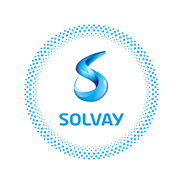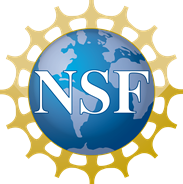
November 26 - December 1, 2023
Boston, Massachusetts
Symposium Supporters
2023 MRS Fall Meeting & Exhibit
Symposium DS04-Accelerating Data-Driven Materials Research for Energy Applications
High-throughput experimentation (HTE), computation, data science, artificial intelligence (AI), and the tight integration of these fields have resulted in significant progress in accelerating the discovery and optimization of novel materials for clean-energy technologies to meet 2050 decarbonisation targets. More recently, autonomous materials discovery has been demonstrated by integrating these approaches into a holistic closed-loop approach to perform adaptive optimization and identify physical insights into material behavior. Meanwhile, some initiatives, such as Materials Genome Initiative, the Joint Center for Energy Storage Research, the Battery500 Consortium, the Battery 2030+, and the Acceleration Consortium have made significant advances in materials research by enabling effective collaboration between academia and industry. The ability of data-driven materials research to provide useful tools for scientific discovery and optimization has been demonstrated. However, the application of a data-driven research method to complex materials systems has specific hurdles, such as a lack of large-scale and high-quality datasets, appropriate algorithms, and the development of accurate/reliable prediction models. Global collaboration and continuing advancement in all these fields are essential to addressing these problems for next-generation clean energy technologies. This symposium will provide a platform for materials scientists, computational scientists, data scientists, and automation/robot experts to present their recent progress in accelerated materials discovery based on a data-driven research approach. The development of high-throughput experimental and computational methodologies, automation technologies, AI and related techniques, as well as their integration for autonomous materials discovery and optimization, will be covered. The topical list of this symposium is intended to cover a diverse range of data-driven materials discovery and development.
Topics will include:
- High-throughput experimental and computational approaches to novel materials discovery
- Automation platforms and workflows in the field of energy materials research and development
- AI/ML in materials science
- High-throughput data generation and management
- High-Throughput Virtual Screening (HTVS)
- AI-Powered Inverse Molecular Design
- ML assisted molecular simulations
- Uncertainty quantification, prior formation, and Bayesian methods in materials research
Invited Speakers:
- Richard Braatz (Massachusetts Institute of Technology, USA)
- William Chueh (Stanford University, USA)
- Dominik Dworschak (Forschungszentrum Jülich GmbH, Germany)
- Roman Garnett (Washington University in St. Louis, USA)
- Grant Gavranovic (Unchained Labs, USA)
- John Gregoire (California Institute of Technology, USA)
- Jason Hein (University of British Columbia, Canada)
- Heather Kulik (Massachusetts Institute of Technology, USA)
- Alfred Ludwig (Ruhr-Universität Bochum, Germany)
- Benji Maruyama (Air Force Research Laboratory, USA)
- Elsa Olivetti (Massachusetts Institute of Technology, USA)
- Kristin Persson (Lawrence Berkeley National Laboratory, USA)
- Dierk Raabe (Max-Planck-Institut für Eisenforschung GmbH, Germany)
- Matthias Scheffler (Fritz Haber Institute of the Max Planck Society, Germany)
- Taylor Sparks (The University of Utah, USA)
- Shijing Sun (Toyota Research Institute, USA)
- Rajeev Surendran (Argonne National Laboratory, USA)
- Christopher Sutton (University of South Carolina, USA)
- Eva Unger (Helmholtz-Zentrum Berlin, Germany)
- Wei Wang (Pacific Northwest National Laboratory, USA)
- Olga Wodo (University at Buffalo, The State University of New York, USA)
- Dawei Zhang (University of Science and Technology, China)
- Yizhou Zhu (Westlake University, China)
Symposium Organizers
Jason Hattrick-Simpers
University of Toronto
Canada
Andrew Detor
Defense Advanced Research Projects Agency, USA
USA
Yangang Liang
Pacific Northwest National Laboratory
USA
Doris Segets
Universität Duisburg-Essen
Germany
Topics
autonomous research
combinatorial




-2.tmb-mtg_rel_ad.png?Culture=en&sfvrsn=a4240c09_1)

























